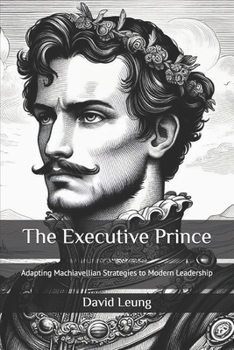The Executive Prince: Adapting Machiavellian Strategies to Modern Leadership
In the dynamic and often tumultuous world of modern business, leaders face challenges that test their strategic acumen, ethical boundaries, and capacity to inspire and lead. While the landscape of leadership and management has evolved over the centuries, the core principles of power, influence, and human behaviour remain remarkably consistent. This is where the wisdom of Niccol Machiavelli, as presented in his seminal work The Prince, finds its enduring relevance.
The Executive Prince: Adapting Machiavellian Strategies to Modern Leadership bridges the centuries-old insights of Machiavelli with contemporary leadership practices. Drawing from William Kenaz Marriott's classic 1908 translation of The Prince, this book provides a fresh perspective on how Machiavellian principles can be effectively applied to the modern corporate environment. For those who wish to explore Machiavelli's original work in more depth, the appendix includes Marriott's translation for further reference and deeper understanding.
Machiavelli's astute observations on power dynamics, strategic decision-making, and the complexities of human nature are as pertinent today as they were in Renaissance Italy. His candid and sometimes controversial advice to rulers on gaining and maintaining power serves as a valuable guide for today's executives navigating the intricacies of organisational leadership.
This book aims to demystify Machiavelli's teachings and demonstrate how his pragmatic approach can enhance leadership effectiveness. Each chapter delves into key Machiavellian concepts, translating them into actionable strategies for the modern manager. By understanding and adapting these timeless principles, leaders can cultivate the skills necessary to thrive in an increasingly competitive and unpredictable business world.
It is essential to approach Machiavelli's work with an open mind and a critical eye. While some may view his tactics as ruthless, others see them as realistic and grounded in a profound understanding of human behaviour. In understanding these perspectives, The Executive Prince encourages readers to find a balance, embracing the strategic insights of Machiavelli while adhering to their own ethical standards.
Ultimately, this book seeks to empower leaders with the knowledge and tools to navigate their organisations with confidence and foresight. By learning from one of history's most influential political philosophers, modern executives can enhance their leadership capabilities and drive their teams toward success.





